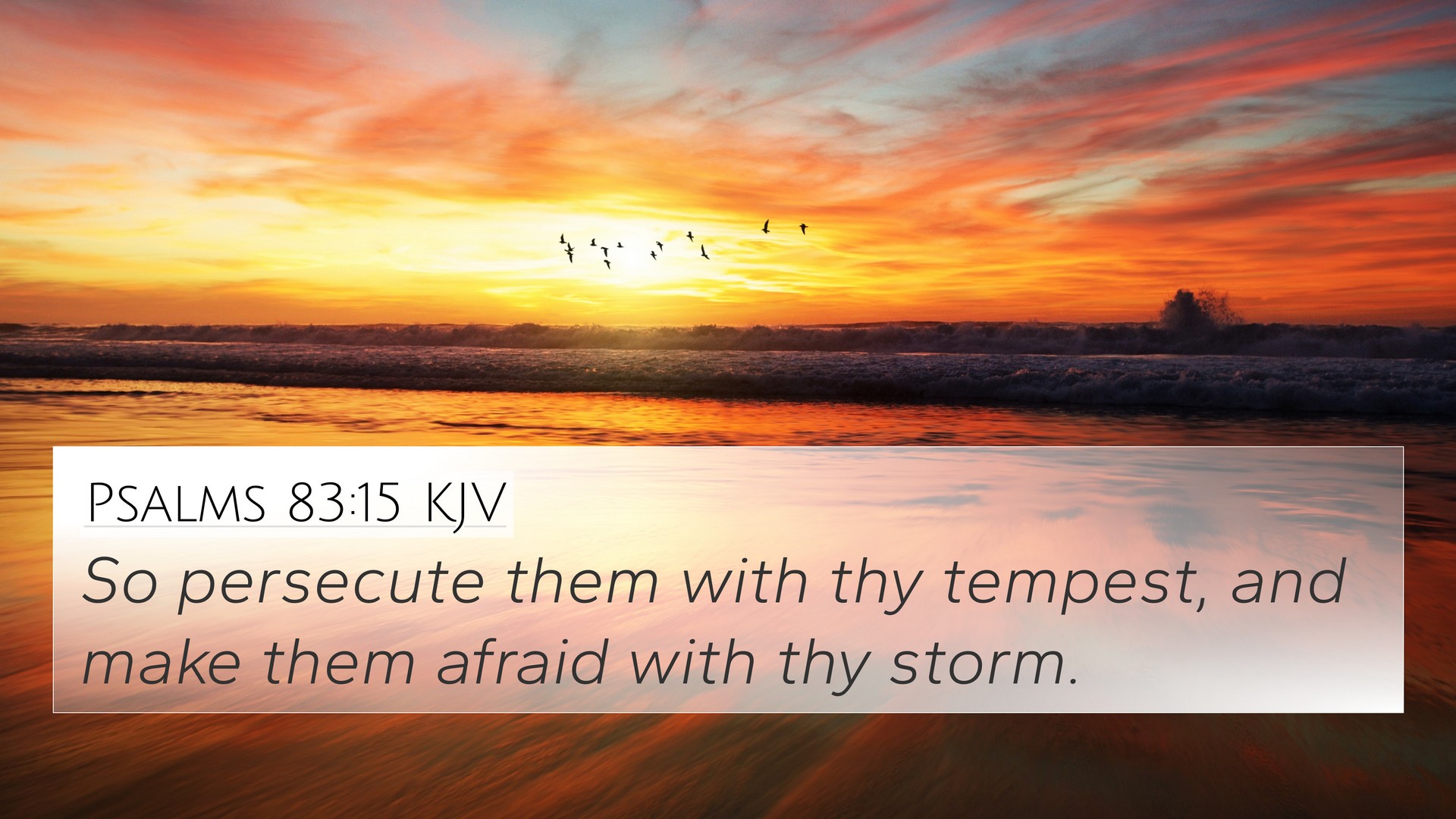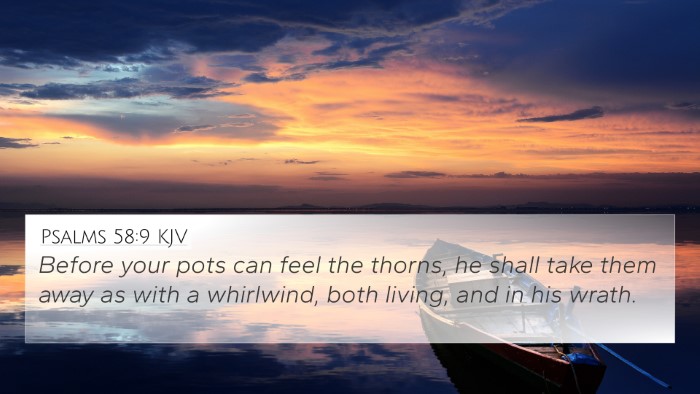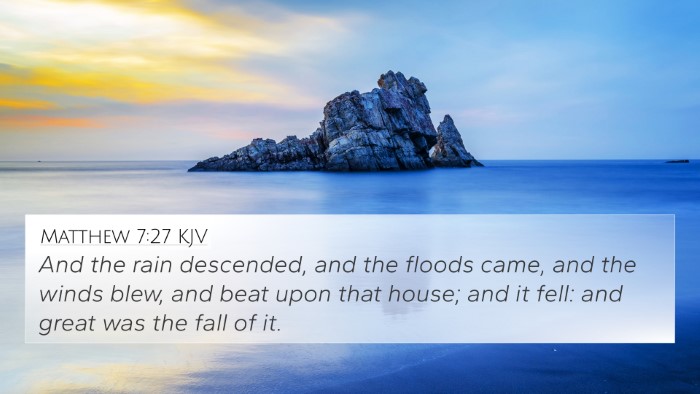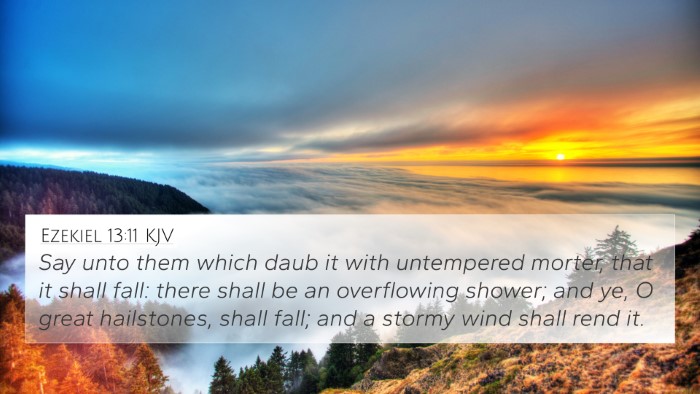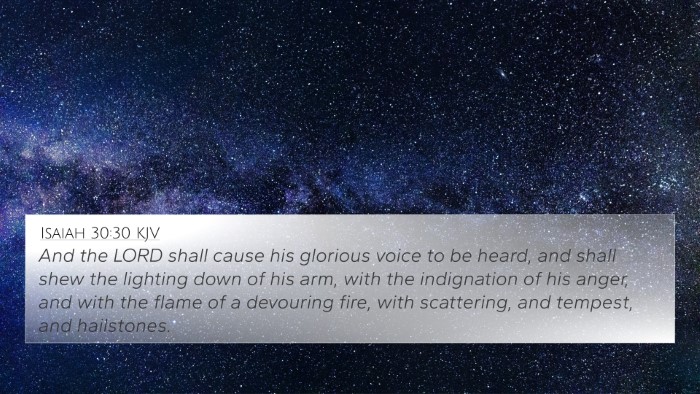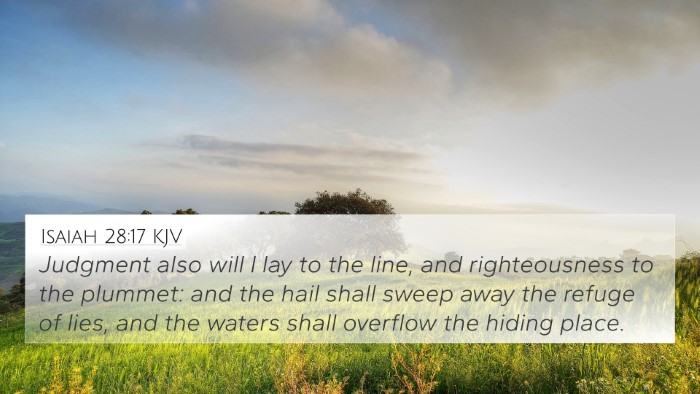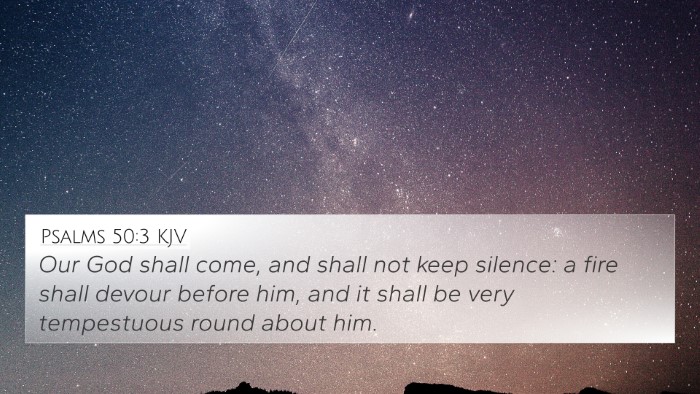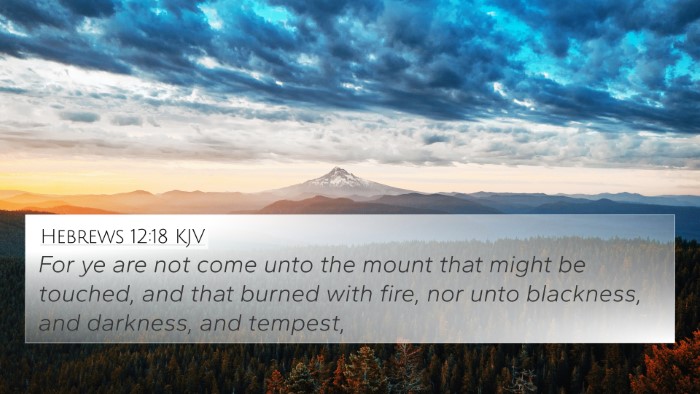Bible Verse Meaning: Psalms 83:15
Psalms 83:15 states: "So pursue them with Your tempest, and frighten them with Your storm.". This verse conveys a powerful plea directed toward God, you may understand this as an appeal for divine intervention against adversaries. The psalmist is calling upon God to act mightily against enemies, invoking the imagery of a tempest and storm to illustrate the depth and ferocity of the request.
Insights from Public Domain Commentaries
Matthew Henry's Commentary:
Henry emphasizes the context of the entire psalm, noting that it is a call for God's judgment against nations conspiring against Israel. He mentions the usage of natural phenomena—tempests and storms—as representations of God's power. Henry interprets this plea as a recognition that only God’s might can restore justice and protect His people from their oppressors.
Albert Barnes' Notes:
Barnes interprets this verse as a metaphor for divine wrath, where storms symbolize chaos and disorder inflicted upon enemies. He highlights the appeal's urgency, suggesting it serves both as a cry for help and as an affirmation of God’s sovereign authority over the elements. Barnes links this passage to the broader themes of justice, divine protection, and the need for reliance on God's strength during times of distress.
Adam Clarke's Commentary:
Clarke provides an interpretation that centers on the desperation of the psalmist. He notes that the imagery of tempest reflects the seriousness of the request. Clarke draws attention to the connection between God's actions on behalf of His people and the nature of the adversaries, suggesting that the psalm serves as a reminder of God’s power to overcome any opposition. He underscores the importance of understanding human conflicts in light of divine providence.
Cross References
- Psalms 2:5: "Then He will speak to them in His wrath, and terrify them in His fury." - This verse similarly depicts God’s active judgment against adversaries.
- Isaiah 29:6: "You will be punished by the Lord of hosts with thunder and earthquake and great noise." - This verse links God’s response with natural phenomena, echoing the themes found in Psalms 83:15.
- Nahum 1:3: "The Lord is slow to anger and great in power, and will not at all acquit the wicked." - Highlights God’s power over nature and nations.
- Jeremiah 10:13: "When He utters His voice, there is a tumult of waters in the heavens..." - Relates to the idea of God's voice commanding the elements against enemies.
- Mark 4:39: "And He arose and rebuked the wind, and said to the sea, 'Peace! Be still!' And the wind ceased, and there was a great calm." - Messianic authority over storms relates to God's sovereignty.
- Romans 12:19: "Vengeance is mine, I will repay, says the Lord." - A promise of divine retribution, reinforcing the themes present in the psalm.
- Psalm 107:29: "He calmed the storm to a whisper, and the waves of the sea were hushed." - God’s control over chaotic nature correlates with the storm imagery in Psalms 83:15.
- Psalm 46:1-3: "God is our refuge and strength, a very present help in trouble." - Reflects the sentiment of reliance on God during turmoil.
- Exodus 14:24: "And in the morning watch the Lord looked down on the Egyptian army through the pillar of fire and cloud, and threw the Egyptian army into a panic." - God's intervention against enemies manifests in similar divine acts.
- Revelation 11:19: "Then God's temple in heaven was opened, and within his temple was seen the ark of his covenant. And there came flashes of lightning, rumblings, peals of thunder, an earthquake and a severe hailstorm." - The imagery of storms in connection with God's judgment capsulizes a broader biblical theme.
Thematic Connections
This verse and its interpretation resonate with various themes throughout the Bible, including:
- Divine Protection: Psalms frequently express reliance on God for safety, establishing a spiritual refuge amid adversities.
- God’s Sovereignty: The imagery of storms symbolizes God's ultimate authority over creation and events.
- Retribution: Many biblical passages evoke God’s promise to avenge His people against their enemies, thus linking Old and New Testament themes.
- Justice: The psalmist’s plea underscores the continuous biblical call for justice to be served by divine means.
- Faith in Adversity: The overarching message encourages believers to seek God in times of trouble, mirroring prayers throughout scripture.
Conclusion
Psalms 83:15 encapsulates a profound appeal for God's intervention, framed within a vivid metaphor of storm and tempest. The insights offered by traditional commentaries reveal deep layers of context, emotion, and theological reflection on both divine retribution and protection. Cross-referencing this verse with others enriches one's understanding of the intricate web of biblical themes and the nature of God's involvement in human history.
For deeper exploration, tools for Bible cross-referencing such as Bible concordances or guides can aid believers in discovering similar themes and messages throughout scripture. Learning how to use Bible cross-references can greatly enhance one's study and comprehension of the interconnectedness of biblical texts.
